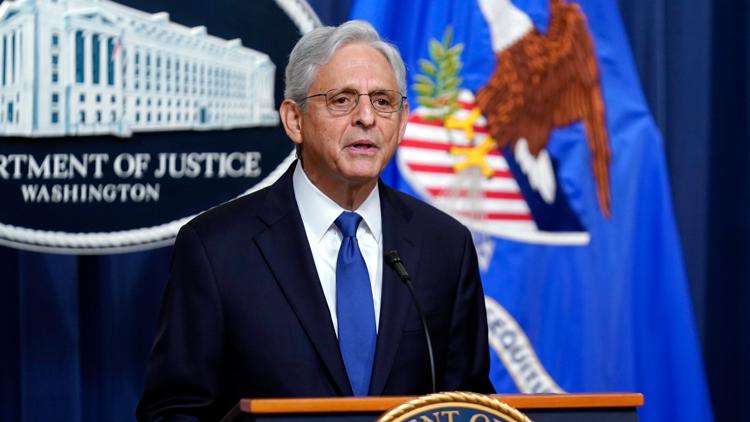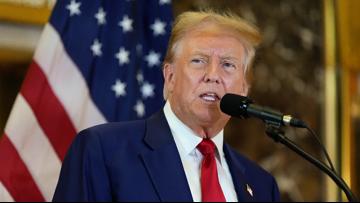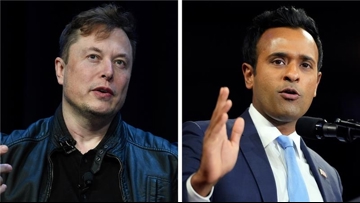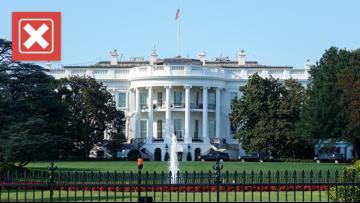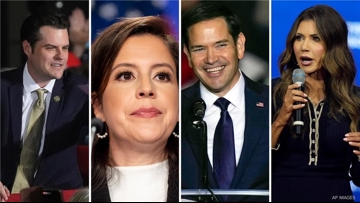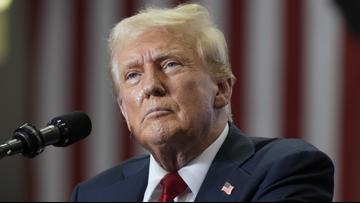On Aug. 11, U.S. Attorney General Merrick Garland appointed David Weiss as special counsel in the Hunter Biden probe.
A special counsel is an attorney appointed to investigate, and possibly prosecute, a case in which the Justice Department perceives itself as having a conflict or where it’s deemed to be in the public interest to have someone outside the government take responsibility.
Weiss, who was appointed by former President Donald Trump, was sworn in as Delaware’s U.S. attorney in February 2018. U.S. attorneys are typically asked to resign at the start of a new presidential administration, but Weiss was retained after President Joe Biden took office to continue investigating Hunter Biden’s financial dealings.
Garland’s decision to appoint Weiss as special counsel drew criticism from some people online, including those who said it went against federal regulations.
“According to DOJ regulations, a special counsel must be appointed from outside the federal government. Special Counsel David Weiss — who was just appointed — is a U.S. attorney,” Sen. Marsha Blackburn (R-Tn.) wrote in a tweet.
THE QUESTION
Did Attorney General Garland go against special counsel regulations when he appointed Weiss?
THE SOURCES
- Section 600.3 of the federal special counsel regulations
- Attorney General Merrick Garland’s order appointing Weiss as special counsel
- Former Attorney General William Barr’s 2020 order appointing U.S. attorney John Durham as special counsel
- 28 U.S. Code, Sections 510 and 515
- The U.S. Senate
- Scott Anderson, a fellow in governance studies at the Brookings Institution, and general counsel and senior editor for Lawfare
THE ANSWER
It’s true there is a special counsel regulation that says the person should be “selected from outside the U.S. government.” But it’s not illegal to bypass the regulation and Garland is not the first attorney general to do so.
WHAT WE FOUND
There is a section of the federal special counsel regulations that says the person filling the role “shall be selected from outside the United States government.” In his role as a U.S. attorney, David Weiss works for the federal government.
But Attorney General Garland did not appoint Weiss in accordance with these specific special counsel regulations, an official order from his office shows.
Scott Anderson, a former government attorney who now works for the Brookings Institution and Lawfare, told VERIFY it is “well within” Garland’s legal authority to bypass that special counsel regulation.
That’s because federal regulations differ from laws. The U.S. Senate explains that federal laws are bills that have passed both Houses of Congress and are listed in the United States Code.
Regulations, on the other hand, are not passed by Congress. They are rules made by executive branch departments and agencies that are used to implement federal laws.
Federal law gives attorneys general “broad discretion” in determining how to use Department of Justice personnel for investigations, Anderson said.
That’s why Garland was able to bypass some of the special counsel regulations and instead rely on his underlying legal authority from Congress to appoint Weiss, Anderson explained.
At least one other attorney general has bypassed the same regulations when appointing a special counsel.
In 2020, then-U.S. Attorney General William Barr appointed U.S. attorney John Durham as special counsel to investigate how the FBI and Department of Justice handled a probe into Russia’s involvement in the 2016 presidential election.
Barr did not appoint Durham in accordance with the special counsel regulations that say a person should be picked from outside the U.S. government, either.
Anderson noted that special counsel appointments are sometimes given to people inside the Justice Department because those attorneys have “substantial experience with handling sensitive criminal matters.”
“They are also individuals who may have already been involved in an ongoing investigation. In this case, for example, David Weiss was already involved in investigating Hunter Biden in his capacity as a U.S. attorney for the state of Delaware,” Anderson said. “Because of that, if they had changed to an outside special counsel, the investigation would have slowed substantially and may have required a different team to be briefed or read in.”
In their orders, both Garland and Barr appointed a special counsel in accordance with a federal law that allows Justice Department officers to “conduct any kind of legal proceedings” if they are directed to do so by an attorney general.
Another federal law that both Barr and Garland included in their orders says the attorney general can sometimes make “appropriate” provisions “authorizing the performance by any other officer, employee, or agency of the Department of Justice of any function of the Attorney General.”
While it’s not illegal to bypass the special counsel regulations that say a person should be picked from outside the government, the decision could open the Justice Department up to criticism, Anderson said.
“There probably was a reason why the…special counsel regulations were designed to draw a lawyer from the outside, and that is that the individual is not in any way beholden to the attorney general or the Justice Department for their career,” he said.

